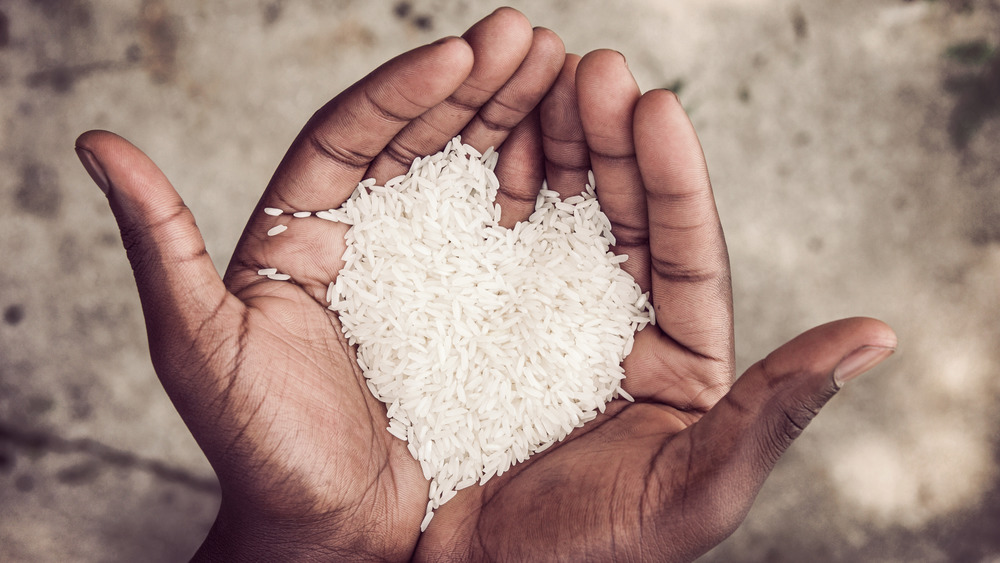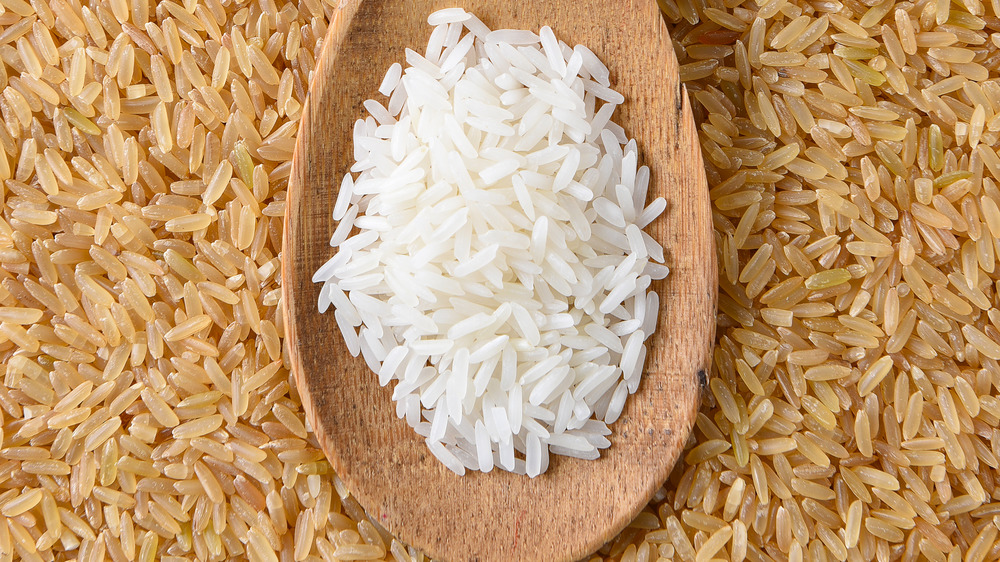Brown Vs. White Rice: Which One Is Better For You?
Rice is a common staple in the diets of millions of people around the world. But is there one type that is better for you than the rest? According to the American Heart Association, whole grains — those that still have the nutritious bran and germ intact — are a better choice for most people than refined grains like white rice.
Brown rice tends to be more nutritious than white rice because it hasn't been stripped of its fiber and many of its nutrients. It can contain anywhere from 1 to 3 grams more fiber than the same serving of white rice (via Healthline). Fiber can play an important part in helping to lower cholesterol, regulate blood sugar, and reduce your risk of heart disease (via Mayo Clinic). Nutrients like magnesium and selenium, which aid with anything from bone development to protection from cancer, make brown rice a smart choice to add to your meals.
Don't rule out white rice
So should you avoid white rice altogether? Not so fast. While it may not boast all of the health benefits of its whole grain cousin, white rice is often fortified with vitamins and minerals that may be otherwise hard to get. White rice tends to be slightly higher in both calcium and iron. It's also a rich source of folate, a type of B-vitamin that is needed to make blood cells and DNA. Getting enough folate is particularly important for people who are pregnant or planning to become pregnant (via NIH).
The bottom line is that while brown rice is more nutritious overall, white rice has its benefits too. If you're concerned about heart health or diabetes, brown rice might be the one for you. If your doctor has recommended a low fiber diet or you're pregnant, it could be best to stick with white rice. Just remember, no matter which carbohydrate you decide to put on your plate, balancing it out with a variety of other foods is the key to a healthy diet.


